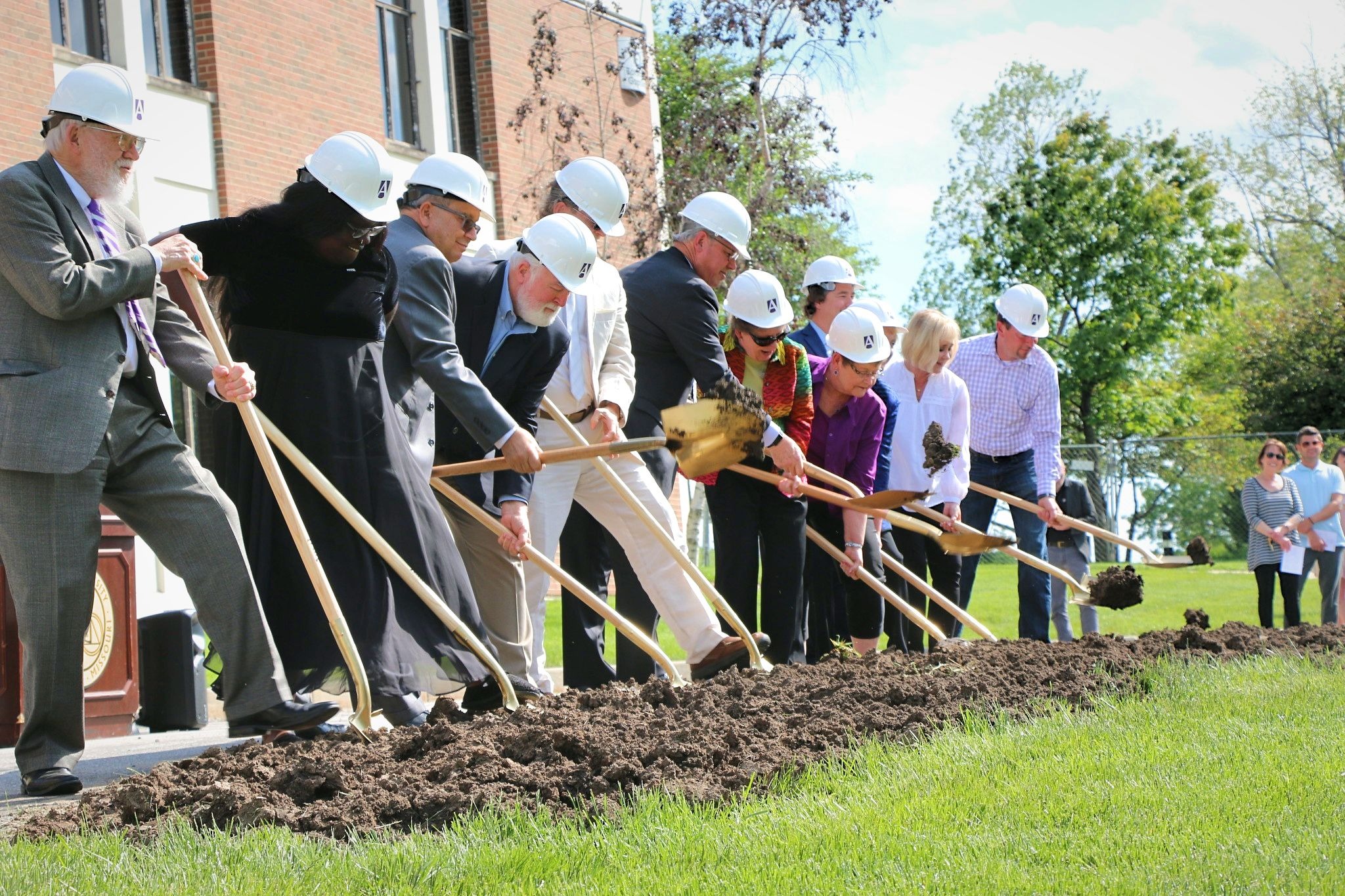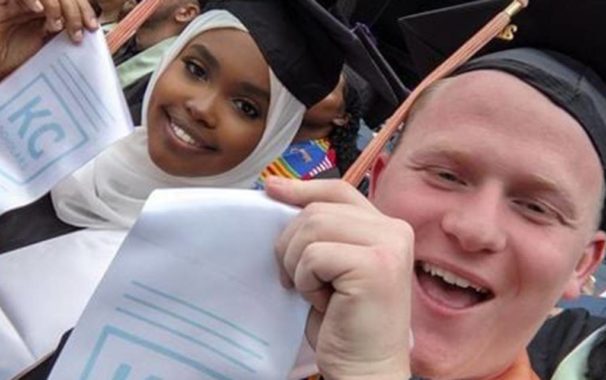A Google search on higher education news today will turn up countless references to college “entry,” “access,” and even a call for “free college.” The federal government recently announced a student debt forgiveness program which will benefit millions of Americans. Several states, including Missouri, have created pathways to free community college, admirably seeking pathways for aspiring students to get into college. But we believe the focus on access must be paired with a commitment to see students complete their college degree.
According to the National Center for Education Statistics, nearly 4 in 10 students who start college at a four-year institution do not finish where they started. It’s even worse with two-year institutions, where nearly 6 in 10 do not complete. What does that mean for America? More than 36 million Americans who have some college but no degree.
This was the pioneering vision of Ewing Marion Kauffman for Kansas City, which has become the mission of KC Scholars: Provide the means for low- and modest-income students in Kansas City to pursue — and complete — a degree. Over the years, we have made great progress on this front. Today, in a higher education world that sees annual dropout rates near 20%, our KC Scholars persist at 94% year over year.
We succeed because of the wraparound support we provide our KC Scholars, including support for college planning, college advising, preparation for college entrance exams, support in applying for federal financial aid and more, which means these students are ready for college. Our intensive advising and support continues through college. This is why, in large part, 75% of KC Scholars finish college with a degree. That’s significantly higher than graduation rates at most colleges and universities alone.
Our work has demonstrated that we can succeed in helping thousands of Kansas City’s undereducated geniuses achieve college degrees, with all the benefits they bring to graduates and their families. College graduates earn on average almost $25,000 per year more than those with only a high school diploma. Unemployment among college graduates is significantly lower than high school graduates. Even health outcomes are better for college graduates. This is why our focus is and must be not on access to college, but on access to a degree.
Our next great challenge is to address the scale of the need. Each year, we identify and select about 1,300 students for eligibility to become KC Scholars. This year, however, we were only able to fund about 400 of them to go on to college. That’s right: More than 900 students each year who are capable and hoping to go to college as KC Scholars do not get funded.
This month, KC Scholars and Avila University announced a groundbreaking program to provide full tuition scholarships to at least 100 of those low-income students from the greater Kansas City region each year over the next eight years (800 total over that time span). This represents a significant step toward our shared goals of access — not just to a college education, but to a college degree.
While our partnership with Avila University is significant, neither of us — KC Scholars nor Avila — believe it is enough. Our agreement with Avila will provide access to a degree to at least 100 of those 900 aspiring Scholars starting in fall 2023, but there are still 800 more to go — each year. That’s 800 prospective KC Scholars — thousands over the coming years — capable of college success but without the means to access that degree. Avila has committed to significant fundraising to increase the number of individuals who can earn a degree with the support of KC Scholars beyond our agreed-to 100.
Our partnership can serve as a model for others in our region. We believe that together, with the support of Kansas City’s business and philanthropic community, we can find a way to make sure that each and every one of those qualified potential KC Scholars gets access to a degree.
Can you imagine what it would mean for Kansas City to see thousands of low and modest-income men and women earn a college degree? At KC Scholars and Avila University, we can. Nothing can so dramatically address income inequality as the attainment of a degree. Together, we call on more Kansas Citians to step up and support our efforts to expand the number of students who get those degrees across the region.
The investment would pay dividends greater than we might imagine, positively impacting our economy and our workforce. But perhaps more important, it promises to change the lives of thousands of low and modest-income families in our region dramatically.
Earl Martin Phalen is president and CEO of KC Scholars. He co-authored this with Jim Burkee, president of Avila University.
— Published September 21, 2022, in the Kansas City Star Opinion section

